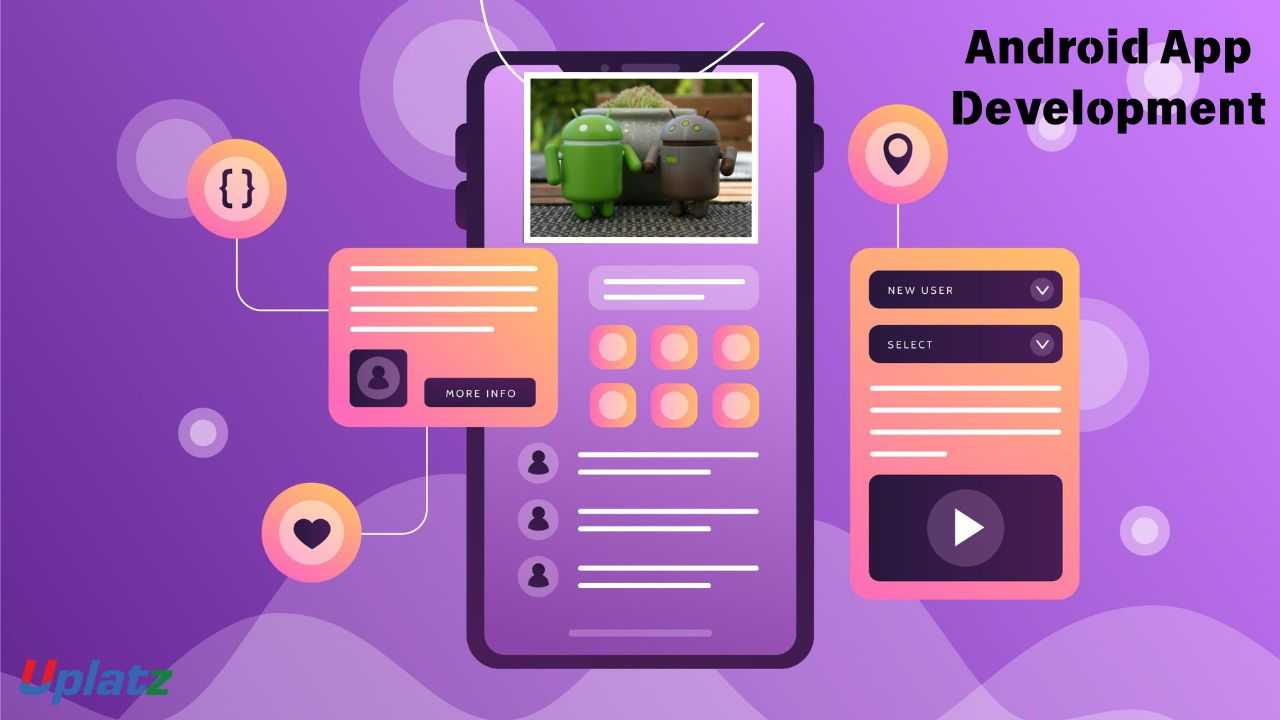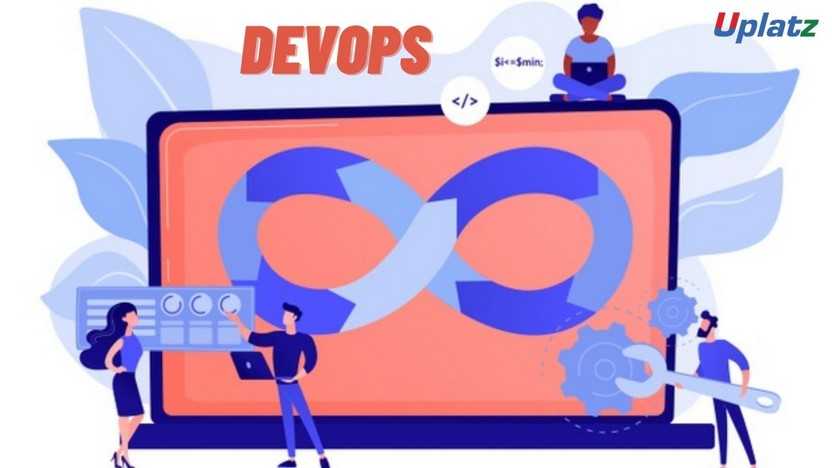Scala
Learn Functional and Object-Oriented Programming in Scala for High-Performance, Scalable ApplicationsPreview Scala course
Price Match Guarantee Full Lifetime Access Access on any Device Technical Support Secure Checkout Course Completion Certificate 95% Started a new career
BUY THIS COURSE (GBP 29)
95% Started a new career
BUY THIS COURSE (GBP 29)
-
 81% Got a pay increase and promotion
81% Got a pay increase and promotion
Students also bought -
-

- Android App Development
- 10 Hours
- GBP 12
- 10 Learners
-

- Canva
- 3 Hours
- GBP 12
- 301 Learners
-

- DevOps
- 20 Hours
- GBP 12
- 1677 Learners

Scala: Master Functional Programming and Build Scalable Applications – Self-Paced Online Course
Scala is a powerful, statically typed programming language that combines the best of object-oriented and functional programming paradigms. Known for its concise syntax, immutability, and strong integration with the Java Virtual Machine (JVM), Scala enables developers to build scalable, concurrent, and high-performance applications. This comprehensive self-paced course is designed to help learners master the fundamentals and advanced concepts of Scala, making it ideal for software engineers, data professionals, and backend developers who aim to work on complex systems, distributed architectures, and data-intensive applications.
The course begins with a deep dive into Scala’s core syntax and programming principles. You’ll start by learning the building blocks of the language, including variables, data types, control structures, and functions. Unlike many traditional languages, Scala supports type inference, which makes the code more expressive and easier to read without sacrificing safety. From the beginning, you’ll be writing clean, efficient code while exploring essential programming patterns. Every concept is reinforced with interactive examples, coding exercises, and mini-projects to ensure you gain a strong foundation.
As you progress, the course introduces object-oriented programming (OOP) concepts such as classes, inheritance, polymorphism, and traits—a more powerful and flexible version of interfaces. Traits in Scala allow you to build reusable components and follow a modular design. You’ll also explore case classes, a unique Scala feature that automatically generates boilerplate code like equals, hashCode, and toString, making your development process more productive.
In addition to OOP, the course places heavy emphasis on functional programming (FP)—a hallmark of Scala that distinguishes it from other JVM languages. You’ll gain hands-on experience with higher-order functions, pure functions, currying, closures, and anonymous functions. You’ll understand how to write immutable, side-effect-free code that is easier to debug, test, and scale. Critical concepts such as pattern matching, recursion, and functional composition are introduced early and applied throughout projects to give you a real sense of the power of FP.
Beyond the syntax, the course explores concurrent and asynchronous programming, which is essential for building modern, responsive applications. You’ll learn how to use Futures, Promises, and the Akka toolkit, which leverages the Actor model to handle parallelism and concurrency in a thread-safe way. With Akka, you’ll develop reactive applications that are responsive, resilient, and scalable, adhering to the principles of the Reactive Manifesto.
A major strength of Scala lies in its native compatibility with Apache Spark, one of the most widely-used big data processing engines. This course includes dedicated modules on using Scala with Spark, where you’ll write distributed data processing jobs using RDDs (Resilient Distributed Datasets), DataFrames, and Datasets. You’ll explore real-world data manipulation, transformation, and analytics, gaining skills that are in high demand in data engineering and machine learning pipelines.
The course also covers error handling strategies in functional contexts using types like Option, Either, and Try, which allow you to manage failures without resorting to traditional exception-based approaches. You’ll develop robust applications that gracefully recover from errors and manage side effects in a predictable manner.
To support full-scale development, you’ll use SBT (Scala Build Tool) for dependency management, compiling, and running Scala applications. You'll also practice writing unit tests using ScalaTest, the most popular testing framework in the Scala ecosystem, and apply principles of Test-Driven Development (TDD) to ensure the quality and reliability of your code.
Throughout the course, you’ll engage with real-world projects that simulate industry applications—building scalable backend APIs, developing data pipelines, implementing concurrent systems, and more. These projects are designed to strengthen your understanding of both theory and practice and to provide you with portfolio-ready work to showcase your skills to employers or clients.
Additionally, the course introduces design patterns and best practices that are aligned with modern software engineering. You’ll learn how to structure code effectively, use dependency injection, and apply clean code principles that make your applications easier to maintain and extend.
By the end of the course, you’ll be capable of writing robust, high-performance applications using both object-oriented and functional paradigms. You’ll be proficient in developing asynchronous and concurrent systems, integrating Scala with Apache Spark, managing complex workflows using Akka, and applying advanced type-safe functional techniques. Whether you're targeting a role in backend development, big data engineering, or functional programming, this course will give you the practical tools and confidence to succeed in a Scala-based environment.
With lifetime access to the course materials, updates, downloadable code samples, and dedicated mentor support, this learning experience is designed to support your journey from beginner to expert. Whether you're new to functional programming or transitioning from Java or Python, Scala offers a future-ready path for building scalable, maintainable, and elegant software solutions.
Course/Topic 1 - Coming Soon
-
The videos for this course are being recorded freshly and should be available in a few days. Please contact info@uplatz.com to know the exact date of the release of this course.
This course is designed to provide learners with a comprehensive foundation in Scala programming, covering both object-oriented and functional paradigms. Through a structured and hands-on approach, learners will gain practical experience with Scala’s syntax, concurrency model, data processing capabilities, and its ecosystem tools like Apache Spark, Akka, and ScalaTest.
By the end of this course, learners will be able to:
-
Understand the syntax, data types, and control structures in Scala.
-
Apply object-oriented programming principles such as inheritance, polymorphism, and traits.
-
Use functional programming concepts like higher-order functions, immutability, currying, and monads.
-
Build and manage projects using SBT (Scala Build Tool).
-
Work with Scala collections, pattern matching, and type inference for expressive coding.
-
Implement asynchronous programming using Futures, Promises, and Akka Actors.
-
Build scalable applications using Akka and concurrent programming models.
-
Integrate and write applications using Apache Spark with Scala.
-
Write and run unit tests using ScalaTest and apply functional design patterns.
-
Build robust, modular codebases that align with industry best practices in Scala development.
Scala – Course Syllabus
1. Introduction to Scala & Setup
-
Overview of Scala and JVM interoperability
Installing Scala and SBT (Scala Build Tool) -
Scala REPL and project structure
-
Differences between Java and Scala
-
First program and Scala ecosystem overview
2. Core Language Fundamentals
-
Variables: val vs var
-
Data types, expressions, and control structures
-
Functions: declaration, invocation, recursion
-
Classes, objects, traits, and companion objects
-
Collections (immutable and mutable): List, Map, Set, Vector
3. Functional Programming in Scala
-
First-class and higher-order functions
-
Anonymous functions (lambdas)
-
Pure functions and immutability
-
Function currying and partial application
-
Pattern matching and case classes
-
Option, Either, and Try for safe error handling
4. Object-Oriented Programming in Scala
-
Traits and multiple inheritance
-
Abstract classes and polymorphism
-
Constructor overloading and auxiliary constructors
-
Access modifiers and encapsulation
-
Self-types and dependency injection patterns
5. Advanced Scala Features
-
Implicits: conversions and parameters
-
Type inference and variance (covariant, contravariant)
-
Context bounds and view bounds
-
Custom control structures and for-comprehensions
-
Advanced pattern matching (extractors, guards)
6. Concurrency and Parallelism
-
Concurrency models in Scala
-
Futures and Promises
-
Asynchronous programming with Future
-
Using ExecutionContext effectively
-
Akka Actors for reactive programming
-
Akka Typed and message-driven architecture
7. Functional Libraries and Type-Level Programming
-
Cats and Scalaz fundamentals
-
Type classes and higher-kinded types
-
Functor, Monad, Applicative, Semigroup, etc.
-
Pure functional IO with Cats Effect or ZIO
-
Tagless final and effect systems
8. Testing and Debugging in Scala
-
Unit testing with ScalaTest and Specs2
-
Property-based testing with ScalaCheck
-
Mocking and test doubles
-
SBT test configurations
-
Debugging with IntelliJ and logs
9. Scala in Data Engineering & Big Data
-
Introduction to Apache Spark with Scala
-
RDDs vs DataFrames vs Datasets
-
Data transformation and aggregation in Spark
-
Working with Hive, Kafka, and Parquet
-
Building data pipelines using Scala and Spark
10. Real-World Projects & Interview Preparation
-
Functional and reactive microservices
-
Building a data pipeline or REST API with Scala
-
End-to-end Scala + Akka or Scala + Spark application
-
Scala design patterns and idiomatic code
-
Interview questions, coding challenges, and mock assessments
Upon successful completion of the Scala course, learners will receive a Certificate of Completion from Uplatz, validating their expertise in Scala and modern functional programming.
This certification demonstrates your ability to write robust, high-performance Scala code for back-end systems, big data platforms, and enterprise-scale applications. It can be showcased in your portfolio, resume, and LinkedIn profile to enhance your credibility in the job market.
This course also provides foundational knowledge beneficial for roles that require proficiency in Scala and Apache Spark, and it supports preparation for job assessments, coding interviews, or internal upskilling initiatives within organizations using the JVM ecosystem.
Mastering Scala can unlock a range of high-demand job roles, particularly in data-intensive and scalable system environments. Common roles for Scala professionals include:
-
Scala Developer
-
Data Engineer
-
Backend Developer
-
Big Data Engineer
-
Spark Developer
-
Software Engineer – Functional Programming
-
Distributed Systems Engineer
-
Machine Learning Engineer (Scala/Spark stack)
Scala is highly valued in industries such as finance, ad tech, e-commerce, telecommunications, and cloud computing, where performance and concurrency are key. Leading companies like Twitter, LinkedIn, Netflix, and many investment banks use Scala to build and maintain mission-critical systems.
-
What is Scala used for?
Scala is used for building scalable applications, especially in backend systems, big data processing, and concurrent programming. -
How does Scala support both OOP and functional programming?
Scala allows defining classes and traits (OOP) while also supporting functions as first-class citizens, immutability, and functional constructs like map, filter, and reduce. -
What are case classes in Scala?
Case classes are immutable data structures that automatically provide methods like equals, hashCode, and pattern matching support. -
What is a trait in Scala?
A trait is similar to an interface in Java but can also contain method implementations. Traits are used for code reuse and modular design. -
What are higher-order functions?
Functions that take other functions as parameters or return functions are called higher-order functions—key to functional programming. -
What is pattern matching in Scala?
Pattern matching is a mechanism for checking a value against a pattern, widely used for control flow and data deconstruction. -
How does Scala handle concurrency?
Through Futures, Promises, and the Akka Actor model, Scala supports concurrent and asynchronous programming. -
How is Scala used with Apache Spark?
Scala is the native language of Spark, and it is used to build data pipelines with RDDs, DataFrames, and Datasets. -
What is SBT in Scala?
SBT (Scala Build Tool) is used to compile Scala code, manage dependencies, and package projects. -
How do you handle errors in Scala?
Scala supports both traditional try-catch blocks and functional error handling using Option, Either, and Try types.









